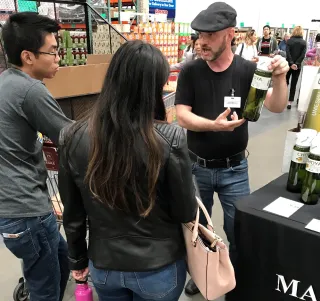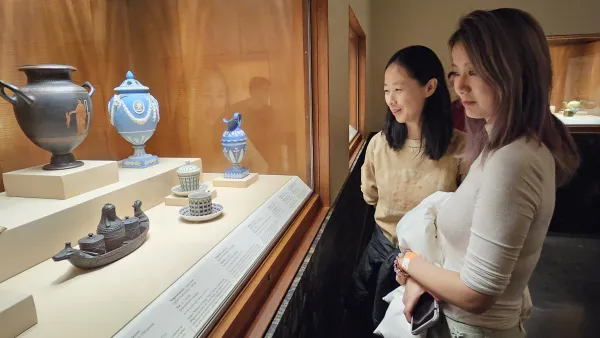Jarrell Sieff graduated from WashU in 1994 with a bachelor's degree in Japanese and Economics. In the years since then, he has developed a prospering sake import business. In this Q&A, Sieff discusses sake, international business, and living and working in Japan.

First, could you tell me a little bit about what your experience studying Japan at Washington University was like?
I studied the Japanese language and majored in Japanese literature at Washington University. I spent my junior year abroad and was very surprised with the academic and personal respect Japanese people gave me for knowing a little bit about Japanese literature. For me studying Japanese language and Japanese literature at Washington University was very challenging and difficult. But it still gets me respect, today especially when I talk to Japanese people about Japanese literature. After all, not too many foreigners in Japan know who Natsume Soseki is…. He is one of Japan’s greatest modern writers, actually printed on Japan’s most common paper currency - the 1000 yen bill!
After graduating from Washington University, you lived and worked in Japan for several years. Tell me about those initial years. What brought you there and where did you work?
Upon graduation I was hired by the JET Programme for teaching English in Kitatsuru Provence of Yamanashi Prefecture. I was the first foreigner to ever live in Kitatsuru Provence. The Provincial government actually had to have a new Provincial stamp made to stamp my passport and took pictures stamping it for the local newspapers. When taking the picture they all applauded to not only make me feel very welcome as their first residential foreigner, but also probably to welcome Japan’s internationalization on a very grassroots level.
When I lived in the countryside of Japan I felt lucky that Washington University has such an excellent program in the Japanese language. The reason is that at the time there were no books in English about living in Japan. There were only books on travelling throughout Japan. So I had to learn on my own, or with the help of my Japanese friends.
How did you come into the importing business?
When coming back to the U.S. on vacation I would always bring home a bottle of Choya ume-shu (Japanese plum liqueur) since we did not have this kind fruit at home. And everybody seemed to love it!
So upon moving back to America I wanted to import ume-shu. The ume-shu company I originally connected with was actually a Japanese sake brewery. I liked the quality of their products. But what really surprised me, and still does today, is the historical/cultural/literary references on sake labels. One of the sake labels actually had a poem I had to translate from the Manyoushu — the oldest collection of Japanese poetry (compiled Nara Period 710-794 CE). This is what really initially hooked me into the sake industry, not necessarily the taste of sake. Sake is a deep part of Japan’s culture, history, and even literature. What a great product to import!
The referenced media source is missing and needs to be re-embedded.
Are you currently living in Japan? How has Japan changed over the years since you lived there in the 1990s?
I am currently living in the San Francisco Bay Area, and Japan has considerably changed in the last 30 years. In my opinion the Japanese government has been very intelligent investing in internationalization the past 60 years through two very large government entities: JETRO (Japan External Trade Organization) and JET (Japan Exchange and Teaching). I think both of these investments of the Japanese government have been very successful in making Japan economically and socially internationalized considering how conservatively closed Japan has been throughout history.
How did the understanding of Japanese culture you gained at WashU shape your outlook as a business owner?
I learned that Japanese literature is actually a very deep part of Japanese culture. Even today in business when I speak about Japanese literature with people from Japan I get such an excited response and respect for talking even a little bit about what I studied a lot during my college years.
The professors I had at WashU influenced my life. Every college student has at least one professor who fundamentally influences the rest of their lives. The most influential professors in my life I had at WashU were Rebecca Copeland, Ginger Marcus, and Marvin Marcus. Each one of them influenced me in academia and also very much influenced me in ways beyond the classroom.
As the author of A Practical Guide for Living in Japan, what advice do you have for students thinking about living in Japan?
My advice to any student thinking about living in Japan is to bring your most valuable asset: your WashU education! And have great conversations about what we actually studied in WashU classrooms with people in Japan.

